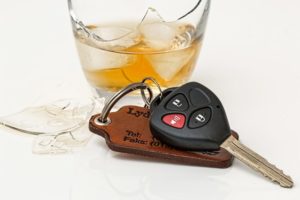
Commercial establishments in the business of serving alcohol must be aware of the legal responsibilities expected of them towards their patrons under the eyes of the law. For example, if a clearly drunken patron ends up leaving a bar after a wild night of binge drinking before getting into his/her car and attempting to drive home and violently crashes into a pole, the bar would likely bear a degree of liability for the damages suffered by the drunken patron.
However, over the last 20 years, the Courts have further expanded the responsibilities of commercial hosts to include owing a special duty not only to their own patrons but also to third party users of the road who may become seriously injured or killed as a result of conduct committed by their patrons. This expansion was established in the 1995 Supreme Court of Canada decision of Stewart v. Pettie. In other words, as a commercial host, you can also be on the hook for damages suffered by third parties who were not even present at your establishment so long as their injuries or death were caused by the negligence of an intoxicated patron who had been at your establishment.
The Courts have not hesitated to impose liability on commercial establishments in the past for injuries to third parties. Some factors the Courts may look to in assessing liability of commercial establishments may include whether there was a system or policy in place to control and monitor alcohol consumption; whether there were inquiries made by staff as to how the patron will get home; whether a taxi was called; whether the staff had knowledge or ought to have had knowledge of the drinking habits/propensities of the patron; whether the staff were properly trained; whether the staff were drinking themselves; whether efforts were made to take the patron’s car keys; and whether steps were taken to ensure the patron in fact left in a taxi.
In the 2001 Ontario case of Dryden v. Campbell Estate, an underage individual became extremely intoxicated before entering a nightclub. After entering the nightclub in a visibly intoxicated state, he had a few more drinks before leaving without any interference from nightclub staff. He got into his car, which was parked at the front of the nightclub entrance and drove away. Shortly thereafter he was involved in a fatal car crash with another vehicle killing himself and a passenger.
At the trial, the nightclub denied liability on the basis that it had not supplied him the alcohol that caused him to become intoxicated. The club also argued that it had sufficiently trained its staff and its legal obligations were met. However, the Court disagreed. It was of the opinion that the club not only allowed him entry despite his visibly intoxicated state but also continued to serve him alcohol. In addition, the nightclub only had bartenders working rather than wait staff who would have been better able to monitor and control his consumption. According to the Court, the bar also failed to take any steps to ensure that he got home safely. As a result, the nightclub was found to be 15% liable.
A commercial establishment in the business of serving alcohol must realize that the Courts have created a special relationship between commercial establishments and third party users of the road to whom a duty of care is owed. Given this duty, all reasonable precautions must be taken by commercial establishments to ensure that users of the road are not put at risk of reasonably foreseeable harm flowing from the conduct of their intoxicated patrons.
Written by Lawson Hennick / Insurance, Personal Injury / April 28, 2019